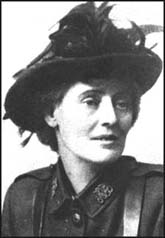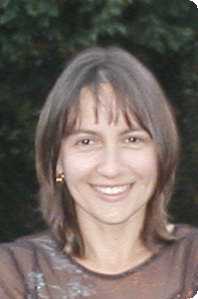Toronto Star article: "Voices lost in translation" Thread poster: PB Trans
|
|---|
PB Trans
Local time: 04:04
French to English
+ ...
Mar. 6, 2004. 01:00 AM
Voices lost in translation
Linguistics scholar explores how, in this age of globalization, dying languages still shape our world Relationship between words
OLIVIA WARD
FEATURE WRITER
The couple next to you in the cafe are speaking a strange language: you feel resentment at being shut out, suspicion about what they're discussing, envy that you don't have the skills to understand the conversation.
What ... See more Mar. 6, 2004. 01:00 AM
Voices lost in translation
Linguistics scholar explores how, in this age of globalization, dying languages still shape our world Relationship between words
OLIVIA WARD
FEATURE WRITER
The couple next to you in the cafe are speaking a strange language: you feel resentment at being shut out, suspicion about what they're discussing, envy that you don't have the skills to understand the conversation.
What you're experiencing is the age-old tension between majority and minority language speakers, hostility that has often escalated to bloodshed and led to the death of languages as well as people.
"Language is power," says Robert Nichols. "It can serve as a bridge for communication, or a barrier to keep others out. It isn't just a cultural issue, but a political one."
Nichols, 24, is a post-graduate student at University of Toronto, and winner of one of Canada's most prestigious academic awards, the Trudeau Foundation's scholarship for outstanding doctoral candidates in social sciences and the humanities.
He is focusing on language diversity and its meaning in an age of globalization where English dominates, and most of the world's 6,000 languages are expected to die out by the end of the next century.
"Some liberal mainstream theorists tend to see language in terms of cultural claims," Nichols says. "Others see minority languages as a hindrance to social mobility. What I'm looking at is a different aspect — the fact that if language is little known, it's also little understood by the central authority. That makes it a valuable political tool."
Born in the small Alberta community of Pigeon Lake, Nichols grew up within earshot of a minority language that is now all but extinct.
"Sarcee is now spoken by only about a dozen native people," he says. ``Young people who want to reclaim pride in being aboriginal are now learning Cree. It's strange, because traditionally the Cree and Sarcee were enemies. But Cree has become a middle ground for many aboriginal people whose own languages have disappeared."
However, while many linguistics experts see minority languages as chronically disadvantaged, Nichols takes a different view.
"They're a way of reinforcing the identity of the people who speak those languages," he says. "It gives them a space away from the ruling power, a place to develop their own identity."
Colonial powers understood that very well, and feared that retaining native languages could foster resistence to their authority. So, Nichols says, most tried to eradicate the languages of countries they invaded.
"When the Spanish came to the Americas they read a set of rules to the people there, telling them their obligations to Spain, such as paying taxes. Of course the rules were in Spanish and the people didn't understand. So they didn't follow the rules, and that became the pretext for an attack by the Spanish."
Even the names of people in conquered villages were changed to Spanish names in order to erase all previous language identity. Those who resisted were punished.
Similar "language colonialism" occurred in the Baltics, Central Asia and the Caucasus, when Russia took over the region in imperial and Soviet times. And in North America and Australia, aboriginal people were subjected to devastating campaigns to force them into the English-speaking majority.
In the past century, many minorities have fought for their language and failed. But there have been resounding successes.
"I took my master's degree in Wales, in Aberystwyth," says Nichols. "There you could hear Welsh spoken on the street. When that happens, it reinforces a sense of identity. "
The preservation of language has as much to do with the determination to promote it, and the resources available, as it does the number of people who can still speak it, Nichols points out. Language survival may also depend on geography.
"A community of 500 that's isolated might be able to maintain its language much more easily than one of 50,000 that's dispersed," he says.
Aggressive promotion of language, sometimes coupled with political rebellion, has ensured the survival of some traditional tongues.
Basque is an official language in Spain's Basque province after a long campaign by militant separatists.
Hebrew, Israel's official language, was revitalized in the 19th century, and later rescued from obscurity by Jews who fought for the new state after World War II. It is now spoken by people around the world.
Central Asian languages such as Kazakh, Uzbek and Tajik have been restored as official languages after the demise of the Soviet Union. Ukraine has renamed its cities to remove Russian titles, as well as replacing Russian with Ukrainian as the first language. In the Baltic States, Russian-speakers are now required to learn Latvian, Lithuanian or Estonian.
Promoting languages that have fallen into decline is easiest when the state is fully behind them. But it's most problematical when the people who speak them have little political power.
That's when the legacy of colonialism surfaces most visibly, Nichols says.
"You can see examples in Canada," he says. "The argument against preserving aboriginal languages is that if you educate small children in a minority language they won't be full members of the larger society. It's ironic in a colonial society, because if you subscribe to that, then colonialism becomes a self-justifying thing."
Today, one of the central dilemmas for native speakers is mobility.
"A whole younger generation on my reserve have no fluency in Cree," says Floyd Favel, a Saskatchewan playwright and theatre director who integrates his native Cree in his work to critical acclaim. "They're into English. It's only in the more isolated parts of the province that people practice the language and lifestyle."
As young people gravitate to cities for jobs and studies, he says, they lose interest more and more. Eventually their own language becomes obsolete.
"Cree is in a very threatened situation. Until we realize the danger fully, things won't get much better. There is a counter-movement, to preserve it as a living language, but right now it's just raindrops in the ocean."
Canada is only one country in which languages are vanishing. Since the early 1990s, alarm has spread in the scientific community about the international demise of minority languages. Large-scale documentation projects have sprung up in Europe and North America to record and analyze dying tongues.
But debate rages between those who believe that little-spoken languages are only of academic interest and those who insist they should be actively promoted.
Should governments help to keep minority languages alive?
"I think Canada should recognize in a more robust way the rights of indigenous peoples," says Nichols.
"But overall, language belongs to people, and the state shouldn't be the giver or withholder of language rights. Perhaps what we should be asking is `what's the justification for not promoting aboriginal language?'"
And, he says, "there shouldn't be a zero-sum game between social mobility and preserving the language. In the case of Hebrew, for instance, nobody suggested that people shouldn't learn it because they'd forget their European languages. The same is true of other peoples.''
Nichols, who speaks French, Spanish and German, admits that he doesn't speak any aboriginal languages.
But he says, "I've been interested in linguistics and politics since I was very young. I had some contact with the aboriginal people living near where I grew up, and so I became interested in aboriginal politics."
Nichols has already had experienced dramatically different aspects of diversity.
Taking an undergraduate degree at a small Alberta liberal arts college, Augustana University, he worked as a research and development consultant to the Metis Nation of Alberta.
After winning the University of Wales' International Politics Excellence Scholarship in the U.K., he entered a parliamentary internship program in Ottawa, and later organized the first internship study tour of Iqaluit, the Nunavut capital.
Last year, a stay in Mexico, working as a teacher and living mostly in the embattled southern Vera Cruz state, heightened his interest in aboriginal language and politics.
"I got a concrete experience of what it's like to be in a community where only a few hundred people can speak your language, and just down the road, nobody understands you," he said.
For the next five years Nichols will work on his doctoral degree in political science, tackling the difficult and often bitterly-contested issues of language and power, as experienced by those whose mother tongues are under threat.
His work is funded by the Trudeau scholarship, which provides $35,000 a year for four years of study, and an additional $15,000 a year for travel and expenses.
At the present time, linguistic specialists say 52 per cent of the world's population speak only 20 languages, and 3,000 of the rarest languages are spoken by less than 1 per cent.
For many, time is running out.
"Within 150 years, experts predict that only 10 per cent of the languages spoken today will remain," Nichols says.
"That's a massive shift in the meaning of what it is to be human."
(http://www.torontostar.com/NASApp/cs/ContentServer?pagename=thestar/Layout/Article_Type1&call_pageid=971358637177&c=Article&cid=1078528209154) ▲ Collapse
| | | | | Thank you Pina | Mar 7, 2004 |
It's subject that interests me a lot. It omitted the fact that languages often contain knowledge that is lost when the language is lost.
For example, a few years ago an anthropologist explained to me about one of the languages here in Mexico has eighteen months a year and the each month's name refers to an agricultural practice.
Anyway, thanks again
| | | | LuciaC
United Kingdom
Local time: 04:04
English to Italian
+ ...
for this really interesting article.
I would like to recommend prof. David Chrystal's "Language Death" on this subject.
Also SOAS (London) has recently started an MA in Language Documentation and Description and a PhD in Field Linguistics. Something is being done but not enough considering the scale of the problem.
Even my own local northern-Italian dialect (parmigiano) is dying. It is not 'cool' to speak it nowadays because it is linked to our rural past. ... See more for this really interesting article.
I would like to recommend prof. David Chrystal's "Language Death" on this subject.
Also SOAS (London) has recently started an MA in Language Documentation and Description and a PhD in Field Linguistics. Something is being done but not enough considering the scale of the problem.
Even my own local northern-Italian dialect (parmigiano) is dying. It is not 'cool' to speak it nowadays because it is linked to our rural past.
It is so painful for me...
Ciao
Lucia ▲ Collapse
| | | | To report site rules violations or get help, contact a site moderator: You can also contact site staff by submitting a support request » Toronto Star article: "Voices lost in translation" | CafeTran Espresso | You've never met a CAT tool this clever!
Translate faster & easier, using a sophisticated CAT tool built by a translator / developer.
Accept jobs from clients who use Trados, MemoQ, Wordfast & major CAT tools.
Download and start using CafeTran Espresso -- for free
Buy now! » |
| | Anycount & Translation Office 3000 | Translation Office 3000
Translation Office 3000 is an advanced accounting tool for freelance translators and small agencies. TO3000 easily and seamlessly integrates with the business life of professional freelance translators.
More info » |
|
| | | | X Sign in to your ProZ.com account... | | | | | |






